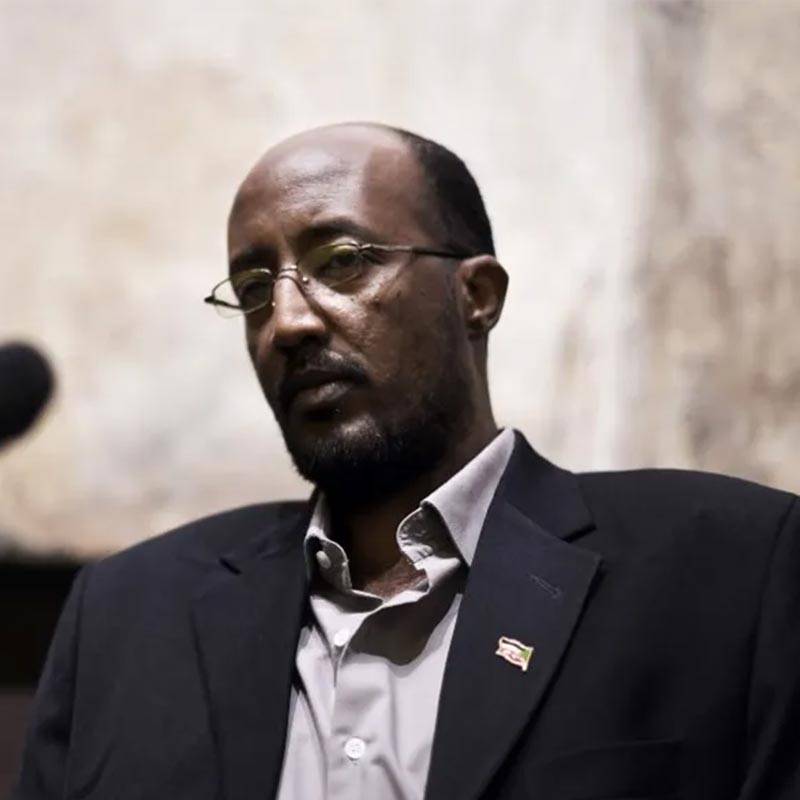The Sudanese army announced on 19 December an investigation into the circumstances of the withdrawal of its troops from Madani, the capital of Gezira State, and the city’s fall into the hands of the Rapid Support Forces (RSF), with little or no resistance. The brief statement said that such an investigation would ensure that the concerned authorities and public would obtain the facts.
No further statements have been issued in this respect. However, the head of the army, Lieutenant General Abdel Fattah Al-Burhan, did announce his acceptance of the initiative by the Intergovernmental Authority on Development (IGAD) to meet with the RSF chief, Lieutenant General Mohammed Hamdan Dagalo, also known as Hemedti.
The meeting was postponed hours before its scheduled date. At the same time, we witnessed a rare appearance by Hemedti hosted by the President of Uganda, Yoweri Museveni, and then the Prime Minister of Ethiopia, Abiy Ahmed, in what appeared to be last minute negotiations to determine the form of the alliances within IGAD before the meeting, which is now scheduled for this month.
Civil political forces have also re-emerged after spending many months organising themselves and forming a new coalition, known as Taqaddam and headed by former Prime Minister Abdalla Hamdok. It is the coalition that may bear the burden of transforming the postponed IGAD negotiations into a political process rather than a mere military-military meeting aimed only at a ceasefire. The head of Taqaddam is planning to meet with Al-Burhan, Hemedti and the head of IGAD to advance the road map for the democratic transition that the coalition adopted to stop the war and restore the transition period.
READ: Egypt urges citizens to leave Sudan
Although this looks promising, things on the ground look a little different. What happened in Gezira State, including the sudden withdrawal of the army, and then violations committed by the RSF, intensified the voices opposing Al-Burhan among his supporters. What began with the call to remove him and the leadership body from their positions, and to promote army officers capable of leading the troops to victory in the war, escalated to calls to arm civilians across northern Sudan.
In some places, there have been demands to form popular militias to rebel against troops in cities and take their weapons from them by force.
As scary as these calls seem, because they threaten the spread of arms in civil society and the formation of tribal and regional militias — a proven recipe for conflict and civil war — they are also understandable in light of the citizens’ fears of being controlled by the RSF and the need to stop its violations. The latter have seen Khartoum witnessing the largest organised looting operations in its history. The RSF did not spare a house from being raided; private cars were stolen; homes were ransacked and personal belongings were stolen; and some homes were occupied by looters.
Moreover, Human Rights Watch has documented dozens of sexual assaults on an ethnic basis committed by the RSF in the city of Al-Junaynah in Darfur. Many citizens have opted to arm themselves because they know what awaits them when the RSF arrive: theft, rape and extrajudicial killing. These fears have been exacerbated by the spread of video footage on social media showing RSF soldiers threatening the citizens of northern Sudan with invasion and the burning of palm trees as revenge for their areas being safe during the years of genocide in Darfur. Ironically, the RSF is accused of being one of the perpetrators of this genocide, when it was a tool in the hands of the Islamic Movement regime.
The dilemma of arming citizens to defend themselves seems very complex. People cannot surrender to the violations committed by the RSF, while calls to bear arms cannot be supported, especially those that call for besieging army units and forcing their officers to arm citizens. Such calls are no less dangerous than those that urge the army to carry out a military coup that would overthrow Al-Burhan.
In light of this, the stopping of the war and negotiating a democratic transition remains the least costly option. However, it is an option that requires a miracle by civil society groups to persuade those who are armed to lay down their weapons and reach an agreement that removes the army from the political process and ends the situation of having multiple armed groups that have burned Sudan, without getting involved in forming new militias to confront the old militias. Civil society has placed its faith in this option. Only time will tell if it is right to do so.
This article first appeared in Arabic in Al-Arabi Al-Jadeed on 30 December 2023
READ: As fighting spreads, UN suspends food assistance in parts of Sudan
The views expressed in this article belong to the author and do not necessarily reflect the editorial policy of Middle East Monitor.


![Sudanese military officials welcome former rebel leader Malik Agar, who is the current deputy of Sudan's army chief and defacto leader, upon his arrival in the eastern state of Gedaref [EBRAHIM HAMID/AFP via Getty Images]](https://i0.wp.com/www.middleeastmonitor.com/wp-content/uploads/2023/12/GettyImages-1825440566-scaled-e1701854277654.jpg?fit=1200%2C800&ssl=1)









